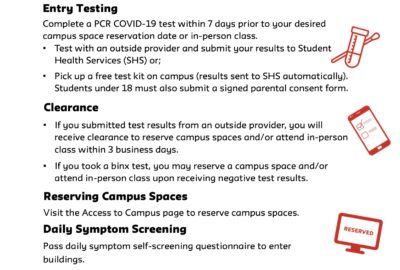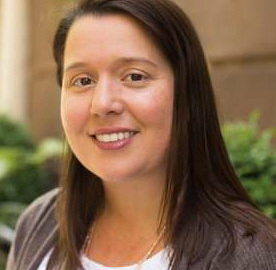
The first Earth Day took place 50 years ago, giving voice to growing concerns about the pollution of the environment — oil spills, toxic dumping, pesticides, the extinction of wildlife — and its harmful effects on human life. Since that first event in 1970, Earth Day has grown to mobilize more than a billion people worldwide for a day of action intended to spark local, national, and global change. At The New School, the Tishman Environment and Design Center’s environmental advocacy builds climate and environmental justice, innovative sustainability, and community resiliency into its many programs, including its Earth Week activities.
Like many events this spring, the Tishman Center’s Earth Week events were affected by the global COVID-19 pandemic. Programming was reworked to address the current crisis, with events that focused on the connections between climate change and communicable diseases like COVID-19, environmental justice, and ways communities can change and adapt to these conditions. The planners also had to switch from developing in-person activities to building online platforms for programs to be held remotely.
The Tishman Center often brings together a wide range of researchers and activists to develop presentations, panels, and direct-action events to engage the university community during Earth Week. This year, two students, Maryna Arabei, Environmental Policy and Sustainability Management (MS) and Marisa Valdez, Environmental Policy and Sustainability Management (MS), brought their ideas to the week’s programming, creating a workshop examining climate resilience and providing recommendations for advancing climate action at The New School.
Their event, Building Climate Resilience in Communities: Thinking Globally, Assessing Regionally & Acting Locally, was first conceived as part of a class project in the course Climate Change: Systemic Crisis and Systemic Change. “We were first paired together in that class and worked on a group project that looked at how to build climate resilience at the lowest community level,” says Arabei. “As part of the project, we built a prototype for a workshop, and Marisa realized that we could turn it into an actual event.”
After the campus shut down because of the need for social distancing, Arabei and Valdez decided to move their program online. In effect, it’s like they had planned two events — pre-coronavirus and post-coronavirus. “It’s been really nice working with Maryna because we both go through phases of having a lot of energy,” says Valdez.
During the planning stages, Arabei and Valdez focused on creating a survey for students, faculty, and staff to gather qualitative and quantitative information to shed light on the community’s concerns. “Before the pandemic hit, we put a lot of effort into making posters and sending emails to interest people,” says Valdez. “When in-person events were canceled, it was almost a dead end for us. But we realized if teachers were going online, we could, too.” The two started brainstorming how they could transform the event and community interaction using Zoom.
Tishman Center staff joined with Arabei and Valdez to ensure they had the resources they needed to make the transition online as smooth as possible. “I was very impressed by Maryna and Marisa’s flexibility and leadership and their ability to effectively shift what was meant to be an in-depth, in-person event to one that was totally virtual yet felt intimate and supportive,” says Mike Harrington, Assistant Director at the Tishman Center. “I don’t have enough good things to say about how well they worked together, with me, and other groups to bring this event to life.”
In a way, the transition online helped with the event structure. “I do of course miss the community element. I think it would have been a lot of fun to feel people’s back-and-forth during an in-person event, but with Zoom, it invited a new way of perceiving people face-to-face, different from what you have in a large event space,” says Valdez.
Getting a crash course on Zoom, they realized that breakout sessions could still be held and the student group leaders who wanted to participate — Nicole Karsch from Sunrise; Ludovica Martella from Zero Hour’s NYC chapter; Genesis Abreau from Black, Indigenous, People of Color Earth; Sarah Howe from Sustainable Cities; and Covi Brannan from the University Student Senate — could lead those sessions.
With the backing of these student groups and their opinions and suggestions, Arabei and Valdez are composing a memorandum of understanding (MOU) and presenting it to The New School through the University Student Senate, asking the university to take action on the climate crisis. “There are a lot of interesting ideas on how to build a more climate-resilient environment at The New School, and we hope the MOU will move us a little bit closer to achieving that ideal environment,” says Arabei.
Climate change and climate justice are issues both Arabei and Valdez care deeply about and plan to continue focusing on after graduation. “I’m in the Environmental Policy and Sustainable Management program specifically for the policy perspective and its strong focus on environmental justice and social justice,” says Valdez. “You can study policy in a lot of different places, but The New School does a really excellent job of focusing on those integral points on why policy doesn’t necessarily reflect the needs of the people it’s supposed to be for.”
Arabei adds, “Community organizing, even if we don’t do it professionally, will always be with us. It’s kind of a civic duty to be active in the community, and if we all do something, we can create something great.”



